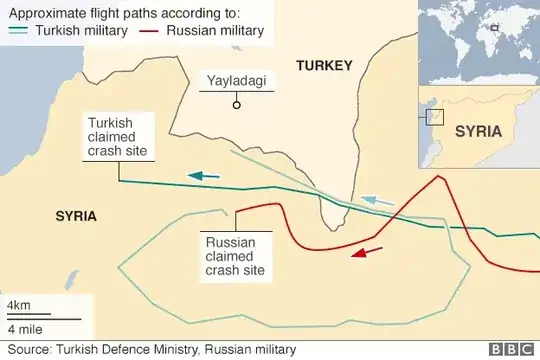For your first question,
Did Turkey actually warn the Russians? And if so, how was it that Turkey warned Russia for a full five minute if the plane was in Turkish airspace for only 17 seconds, at most?
Turkey explained this in its statement to the UN Security Council
This morning (24 November) 2 SU-24 planes, the nationality of which
are unknown have approached Turkish national airspace. The Planes in
question have been warned 10 times during a period of 5 minutes via
‘Emergency’ channel and asked to change their headings south
immediately
I take this to mean that the warning started when the aircraft approaches the Turkish airspace. I think this makes sense - when you sees a hostile aircraft approaching your territory, you don't necessarily want to wait for them to actually enter your territory before warning them. Turkey backed up their claim by releasing an audio of the warning. Some news reports played this audio, for example towards the end of this video. The US State Department also said that its own sources corroborated this account (independently of the Turkish claim).
The available information including evidence from Turkey and our own
sources indicates the Russian aircraft violated Turkish airspace. We
also know that the Turks warned the Russian pilots multiple times
before the airspace violation to which the Turks received no response.
Russia, on the other hand denied that they were warned. Of course, it's more difficult to "prove" that something didn't happen, so unless there is a clear, verifiable evidence that they got the warnings, their claim can't be rejected either.
For your second question
Did the plane actually enter into Turkish airspace? What proof is
there for the plane's path?
Both Russia and Turkey have provided maps of what they claim the flight path was. Naturally the Turkish one showed that the plane went inside their airspace, while the Russian one did not. The US seems to side with Turkey too on this one (see quote above). The ways they produced the maps are not exactly open to inspection, so I don't know if we can decisively say whether the Turkish or the Russian version of events were true.
So, there you go. Both countries have contradicting claims about what happened, so at least one of them must be mistaken, but there is nothing clearly disprovable in either claim.
